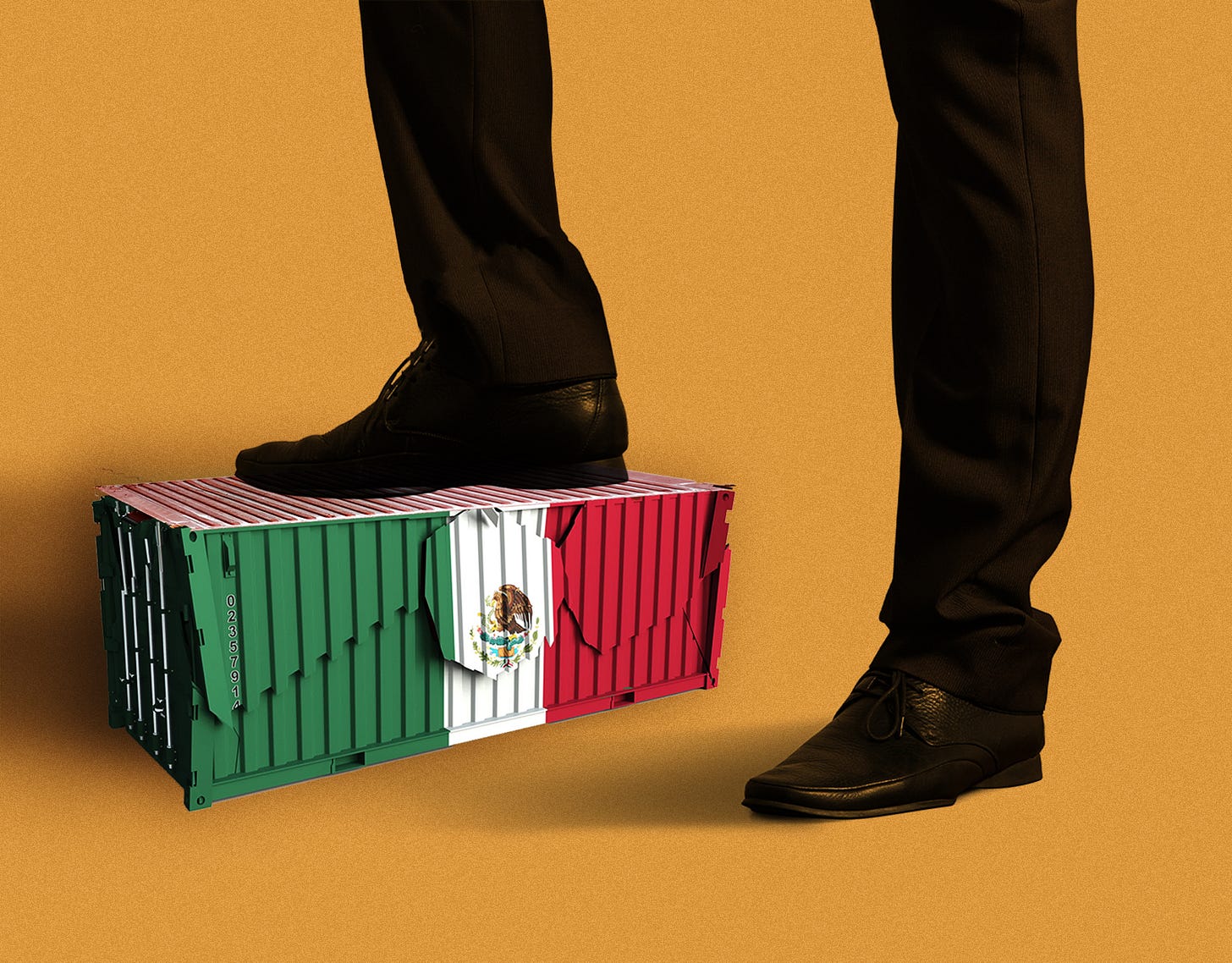America's Trade Laws Were Not Designed for a President Like Trump
On Thursday evening, President Trump took to Twitter to announce that he would soon implement an updated trade policy: A brand new tariff on all Mexican imports, beginning at 5 percent and potentially increasing to as much as 25 percent, until Mexico eradicates illegal immigration across America’s southern border.
If this tweet becomes actual policy, then it will cost U.S. taxpayers tens of billions of dollars a year and be Trump’s most egregious usurpation yet of the power of Congress to control the federal purse.
It’s also probably totally legal.
Under the Constitution, the president has no inherent authority to regulate commerce. When a president wants to take unilateral trade action, then, he must justify his doing so under a specific statutory delegation. In this case, the White House is making use of the International Emergency Economic Powers Act, a 1977 law that allows the president to assume control of trade powers in a time of “national emergency” when he judges there to be an “unusual and extraordinary threat” to U.S. interests “in whole or substantial part outside the United States.”
Traditionally, presidents have used their IEEPA powers as a precision weapon against specific bad actors. For instance, after 9/11, President Bush invoked IEEPA to freeze the assets of foreign individuals “who commit, threaten to commit, or support terrorism.” The law has also been used to throttle commerce with foreign governments who behave belligerently: During the Iran Hostage Crisis, President Carter used the act to impose an embargo on members of the Iranian government.
Nothing in the statute, however, limits the president’s ability to these sorts of relatively targeted, non-disruptive actions. As with other “national emergency” laws that have become relevant this year, the powers granted by IEEPA are extremely broad, with the rationale that Congress could not foreordain in what form time-sensitive emergencies might later arise. If the president decides to invoke these powers to hit, not a remote, poor foe like Iran, but a mammoth trading ally like Mexico—not for acts of deliberate antagonism like state sponsorship of terror, but for simply failing to prevent all illegal crossings of the U.S. border—he is free under the law to do so.
This law, like many others, did not foresee a chief executive like Donald Trump.
The specific statute under which Trump has imposed tariffs in his trade war has differed from conflict to conflict, but the pattern has remained the same: The president takes a law intended for narrow use in emergency situations, decides it’s the easiest way to ram through his trade agenda, and dares Congress to rein him in. They have not called his bluff yet.
Why are all these statutes vulnerable to this kind of abuse? One key reason is doubtless that the lawmakers who passed them realized that tariffs were a mutually destructive weapon that required careful wielding. There seemed to be no need to carefully delineate the circumstances under which a president might require emergency access to such a weapon—because what president would deliberately hamstring his own economy unless there were a dire national security need?
What has become apparent now is that these laws are wholly inadequate to constrain a president like Trump—one who fervently believes, despite oceans of evidence to the contrary, that tariffs are an unalloyed economic good, a bale of free money that strong nations can simply compel weak nations to fork over. This thinking can be seen clearly in Trump’s Thursday declaration: “Should Mexico choose not to cooperate on reducing unlawful migration, the sustained imposition of Tariffs will produce a massive return of jobs back to American cities and towns. Remember, our great country has been the ‘piggy bank’ from which everybody wants only to TAKE. The difference is that now we are firmly and forcefully standing up for America’s interests.”
It is naive to believe that a president who believes such fantasies can be depended on to regulate his own access to crucial commercial powers. It’s an indictment of our current statutory structure that it assumed our presidents always would.
Say this for President Trump: By the time he leaves office, he’ll have taught America a hard, valuable lesson about the dangers of getting complacent about the separation of powers. It does no good for Congress to pass laws that are vulnerable to abuse simply because they believe the circumstances of that abuse will never arise.
Political life, we repeatedly learn, is full of surprises.



